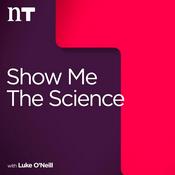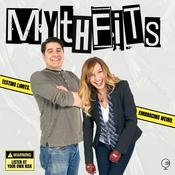2166 episodes
Sourit Bhattacharya, "Postcolonialism Now: Literature, Reading, Decolonising" (Orient BlackSwan, 2024)
13/2/2026 | 58 mins.Postcolonialism Now: Literature, Reading, Decolonising (Orient BlackSwan, 2024) by Sourit Bhattacharya introduces a new method of decolonial reading and criticism. It critically examines the history and ongoing influence of colonialism and imperialism in postcolonial cultures and texts. The volume seeks to address the crucial question of how to read postcolonial literatures closely and comparatively, particularly through the lenses of decolonisation and anticolonialism. Through rubrics such as migration, ecology, trauma, minorities and futurity, Postcolonialism Now engages with close readings of films, graphic novels, fiction, theatre and poetry from across the globe.
Learn more about your ad choices. Visit megaphone.fm/adchoices
Support our show by becoming a premium member! https://newbooksnetwork.supportingcast.fm/critical-theoryLaura K. Field, "Furious Minds: The Making of the MAGA New Right" (Princeton UP, 2025)
12/2/2026 | 43 mins.Political Theorist Laura Field has written an insightful and detailed exploration of the people and the ideas that have shaped the second Trump Administration (and some contributed, as well, to the first Trump Administration.) While Furious Minds: The Making of the MAGA New Right (Princeton UP, 2025) is about quite a few scholars and academics, it is written like a propulsive page-turner of a book. And Field takes us through all the of the ins and outs of the individuals who have pursued a path to power and policy development, often from positions in the Ivory Tower. Furious Minds: The Making of the MAGA New Right is truly fascinating, since it is not simply about egg-headed academics writing up white papers or books, or simply about presidential advisors and the way they have worked to influence the president or put particular policies into place. Instead, Field interrogates the construction of the ideas that have come to dominate this New Right, seeking their genesis and how these ideas, which are divided into three distinct but overlapping intellectual camps, have made their way to the Trump Administration, through Trump himself, Vice President J.D. Vance, and so many of the advisors and cabinet members who surround Trump.
Field’s training in political theory, especially Straussian political theory, contributes to her understanding and analysis of the individuals at the heart of the story in Furious Minds—and how these particular academics think, but in particular how they think about politics and political projects. The substance of Furious Minds is focused on the past decade or so of engagement between these various schools of thought and the Trump Administration—both while in elected office as well as during the out of office interregnum. At the same time, Field traces the deep origins of some of these schools of thought through the longer conservative tradition in the United States. In our discussion, we explore the Claremonters, the Postliberals, and the National Conservatives. Each group is populated by well-educated (PhDs, published authors, etc.) individuals (mostly men) who are urging a concept of the common good, as they define it, on to the American people, through the Trump Administration’s rhetoric, policies, institutional dispositions, cultural approaches, and general demeanor. Field takes all of these thinkers and ideas seriously, making the case for understanding both the ideas themselves and their origins, while also critiquing much of this by exposing the more extremist bases behind these paths of thinking as well as the people who are purveying them.
Furious Minds: The Making of the MAGA New Right is a tour de force of the intellectual and political landscape that has brought us to the midst of the second Trump Administration and provides the reader with deep insight into the radical origins of the myths and concepts that are the backbone of the current Trump Administration and the current Republican Party.
Lilly J. Goren is a professor of political science at Carroll University in Waukesha, WI. She studied political theory at Kenyon College and Boston College. She is co-host of the New Books in Political Science channel at the New Books Network. She is co-editor of The Politics of the Marvel Cinematic Universe Volume I: The Infinity Saga (University Press of Kansas, 2022), and of The Politics of the Marvel Cinematic Universe Volume II: Into the Multiverse (University Press of Kansas, 2025) as well as co-editor of the award winning book, Women and the White House: Gender, Popular Culture, and Presidential Politics (University Press of Kentucky, 2012). She can be reached @gorenlj.bsky.social
Learn more about your ad choices. Visit megaphone.fm/adchoices
Support our show by becoming a premium member! https://newbooksnetwork.supportingcast.fm/critical-theory- If you asked a passerby on the street what anarchism is, they may answer that it is an ideology based on chaos, disorder, and violence. But is this true? What exactly is anarchism?
Anarchism: a Very Short Introduction (Oxford UP, 2022) provides a new point of departure for our understanding of anarchism. Prichard describes anarchism as a lived set of practices, with a rich historical legacy, and shows how anarchists have inspired and criticised some of our most cherished values and concepts, from the ideals of freedom, participatory education, federalism, to important topics like climate change, and wider popular culture in science fiction. By locating the emergence and globalization of anarchist ideas in a history of colonialism and imperialism, the book links anarchism into struggles for freedom across the world and demonstrates that anarchism has much to offer anyone trying to envision a better future.
Alex Prichard is Associate Professor of International Relations at the University of Exeter. His research on anarchism has shed new light on old problems of constitutional politics, order and anarchy in world order, and the history of international thought. He is the co-founder of the Political Studies Association specialist group for the study of anarchism, the Manchester University Press monograph series, Contemporary Anarchist Studies, and a trained chef.
Morteza Hajizadeh is a Ph.D. graduate in English from the University of Auckland in New Zealand. His research interests are Cultural Studies; Critical Theory; Environmental History; Medieval (Intellectual) History; Gothic Studies; 18th and 19th Century British Literature. YouTube channel.
Learn more about your ad choices. Visit megaphone.fm/adchoices
Support our show by becoming a premium member! https://newbooksnetwork.supportingcast.fm/critical-theory Olivier Esteves et al., "France, You Love It but Leave It: The Silent Flight of French Muslims" (Polity, 2025)
06/2/2026 | 57 mins.Their names are Mohamed, Samira, sometimes Matthieu or Sophie. They were born and bred in France and are highly qualified, but they have decided to go and live in London or New York, Montreal or Brussels, Geneva or Dubai. Many were discriminated against on the French job market, or stigmatized simply because of their religion or the sound of their names. Whether devout or not, they felt unloved and unwanted in France, but abroad they have found a sense of peace and fulfilment that their native country failed to give them.Based on extensive original research, France, You Love It but Leave It: The Silent Flight of French Muslims (Polity, 2025) by Dr. Olivier Esteves, Dr. Alice Picard, and Dr. Julien Talpin sheds new light on the silent and largely unacknowledged flight abroad of French Muslims. It explores their motivations, their experiences in France and abroad, and their sense of Frenchness, torn between gratitude and bitterness. This book isn't just about an unreported brain-drain - it is also about the deleterious effects of Islamophobia in a country that balks at the very mention of the concept. And it highlights a pressing issue that many nations with Muslim minorities need to confront.
This interview was conducted by Dr. Miranda Melcher whose book focuses on post-conflict military integration, understanding treaty negotiation and implementation in civil war contexts, with qualitative analysis of the Angolan and Mozambican civil wars. You can find Miranda’s interviews on New Books with Miranda Melcher, wherever you get your podcasts.
Learn more about your ad choices. Visit megaphone.fm/adchoices
Support our show by becoming a premium member! https://newbooksnetwork.supportingcast.fm/critical-theoryPatricia Daley and Ian Klinke, "Human Geography: A Very Short Introduction" (Oxford UP, 2025)
05/2/2026 | 1h 7 mins.Human geography offers answers to some of the most important challenges of our time. To understand contemporary struggles over global economic inequality, forced migration, racial injustice, gender justice, and the climate crisis, we must grasp the ways in which these are fought over and through space.
Human Geography: A Very Short Introduction (Oxford University Press, 2025) by Patricia Daley and Ian Klinke explains how the subject can aid a better knowledge of the modern world. It examines the formation of power systems and the ways in which they have been constructed, subverted, and resisted over time. This Very Short Introduction explores the topic through seven spaces that define the present: the colony, the pipeline, the border, the high rise, the workplace, the conservation area, and outer space. In addition, the authors take a critical view of the discipline and its history, but argue for its continuing vitality.
Patricia Daley is Professor of the Human Geography of Africa at University of Oxford.
Ian Klinke is Associate Professor in Human Geography at the University of Oxford.
Caleb Zakarin is CEO and Publisher of the New Books Network.
Learn more about your ad choices. Visit megaphone.fm/adchoices
Support our show by becoming a premium member! https://newbooksnetwork.supportingcast.fm/critical-theory
More Science podcasts
Trending Science podcasts
About New Books in Critical Theory
This podcast is a channel on the New Books Network. The New Books Network is an academic audio library dedicated to public education. In each episode you will hear scholars discuss their recently published research with another expert in their field.
Discover our 150+ channels and browse our 28,000+ episodes on our website: newbooksnetwork.com
Subscribe to our free weekly Substack newsletter to get informative, engaging content straight to your inbox: https://newbooksnetwork.substack.com/
Follow us on Instagram and Bluesky to learn about more our latest interviews: @newbooksnetwork
Support our show by becoming a premium member! https://newbooksnetwork.supportingcast.fm/critical-theory
Podcast websiteListen to New Books in Critical Theory, Science Vs and many other podcasts from around the world with the radio.net app
Get the free radio.net app
- Stations and podcasts to bookmark
- Stream via Wi-Fi or Bluetooth
- Supports Carplay & Android Auto
- Many other app features
Get the free radio.net app
- Stations and podcasts to bookmark
- Stream via Wi-Fi or Bluetooth
- Supports Carplay & Android Auto
- Many other app features

New Books in Critical Theory
Scan code,
download the app,
start listening.
download the app,
start listening.







































